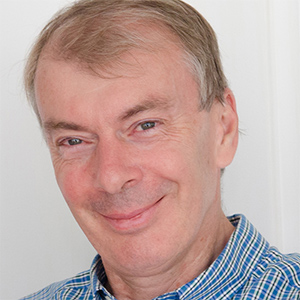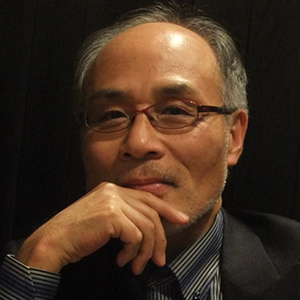| DAY 1 | Saturday, Sept. 14 | 9:15-11:00Room 1H201 |
|---|
9:15-10:00lecturer:Mark Hudson
Premodern Japan was one of the most isolated parts of Eurasia yet we cannot understand Japanese history without examining the broader, ‘global’ context of many social and environmental transformations in the archipelago.
This talk will discuss these two apparently contradictory characteristics of premodern Japanese history using examples from the Late Jōmon until the seventeenth century. James Scott has called the period from the Bronze Age to around AD 1600 the ‘Golden Age of the Barbarians’. During this period, non-state societies were often able to interact with agrarian states on more or less equal terms resulting from their competitive advantage in the economics of trade.
I have called this process the ‘secondary peoples’ revolution’. Escaping the state was easier in mountainous and other difficult terrain and by that criterion Japan must be considered the ‘Golden Islands of the Barbarians’ from the Eurasian Bronze Age equivalent Late Jōmon until the ‘closed country’ policies of the 1630s.
Over this long time-span, many populations in the Japanese archipelago resisted the spread of agriculture while engaging in trade and piracy based in the mountains and on the seas. While the eventual triumph of alluvial agriculture was never in doubt, it was nevertheless actively resisted longer in Japan than perhaps anywhere else.Introduction of lecturer

Mark Hudson
Mark Hudson is a researcher in the Eurasia3angle project at the Max Planck Institute for the Science of Human History in Jena, Germany. He is also a Research Associate of the Institut d’Asie Orientale, ENS de Lyon. He is the author of Ruins of Identity: Ethnogenesis in the Japanese Islands (Hawai‘i University Press, 1999) and has co-edited four books including Multicultural Japan: Palaeolithic to Postmodern (Cambridge University Press, 1996) and Volume 1 of the forthcoming Cambridge World History of Violence. His research focuses on the archaeology and environmental humanities of the Japanese Islands.10:00-10:45lecturer:Yasuo Kobayashi
Based on the recent book I co-authored with Takahiro Nakajima, Freeing up Japan (January 2019) in response to Thomas P. Kasulis’ work Intimacy or Integrity: Philosophy and Cultural Difference (University of Hawaii Press, 2002), I will use the ‘three point research’ method to situate Japanese culture within the macro-perspective of our globalised world, and thus, perhaps, enable the wider world to access Japanese culture.
I will discuss three aspects of Japanese culture, language, body, mind from different periods of history, taking the works of Kōbō Daishi Kūkai (The Meanings of Sound, Sign, and Reality (声字実相義)), the work of Zeami and the romans of Sôseki.
Following which, I will turn to the works of the contemporary composer Tôru Takemitsu where Japanese music, western music, and Balinese music are all explored and developed for musical creation.
I hope this short discussion will be able to give some answers to the pressing question facing the Humanities, that of ‘What form should research in the human or cultural sciences take in this age where global capitalism supported by information technology rules the world?’Introduction of lecturer

Yasuo Kobayashi
Professor at Aoyama Gakuin University in Tokyo, and Emeritus Professor at the University of Tokyo. He has been Director of the University of Tokyo Centre for Philosophy (UTCP) since its creation in 2002 to 2015.
Graduating from the department of French at the University of Tokyo in 1974, he worked under the influence of contemporary French philosophy on interdisciplinary criticism of art and literature. In 1981, he completed his doctorate in Semiotics at the University of Paris X-Nanterre, with a thesis on the philosophical problematic of time and text (jury members included Jean-François Lyotard and Jacques Derrida). He has published over eighteen books on the subjects of literature, art, architecture, photography, philosophy, and science, including (in Japanese): Origin and Root (Miraisha, 1991), Body and Space (Chikuma Shobō, 1995), The Optics of Representation (Miraisha, 2003), The Odyssey of Savoir (Tōkyō Daigaku Shuppankai, 2009), The Deconstruction of History (Miraisha, 2010), The Catastrophe of Being (Miraisha, 2012), and Opera of the Japanese Post-War Culture (Miraisha, 2016). Le Coeur/La mort (UTCP, 2007) is available in French and English. He has proposed a new university-level curriculum, and edited a number of anthologies on the subject of pedagogy. His translations from French include the works of Duras, Lyotard, Derrida, Levinas, among others.
10:45-11:00
